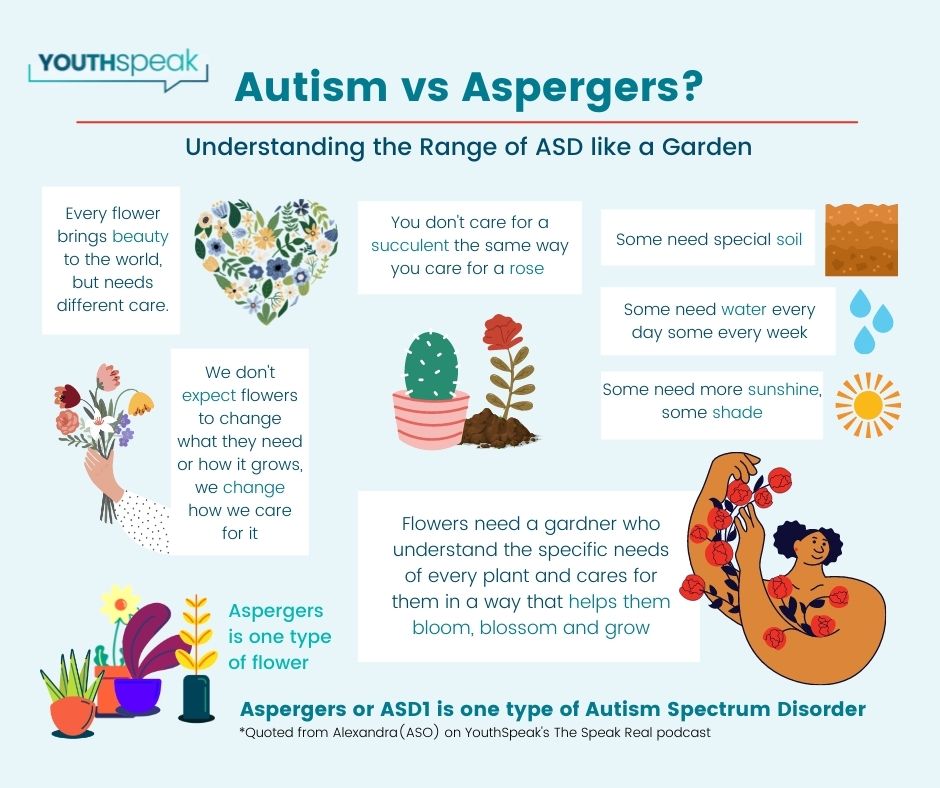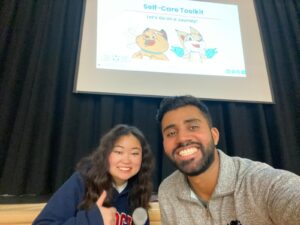On this week’s episode of the SpeakReal podcast, Shawn caught up with Alexandra, the executive director of ASO (Asperger’s Society of Ontario) in support of asperger’s and autism awareness month. Alexandra works closely with individuals, families, and service providers across Ontario to help enhance and support services for the ASD (autism spectrum disorder) community. Her role is challenging yet rewarding and has many perks, such as collaborating with other agencies and getting to hear stories about those who live with ASD.
What is ASD, you may ask? Autism spectrum disorder is a neurodevelopmental disorder one is born with and has for life. ASD can affect how a person interacts with others and the world around them and how a person processes information. Alexandra emphasizes that ASD is a spectrum disorder, meaning it affects everyone differently to varying degrees. People living with ASD require different levels and types of support to meet their needs. Social, emotional and communication skills can also be affected.

Signs and symptoms of those living with ASD could be “persistent differences in communication, interpersonal relationships, and social interactions across all different environments”, Alexandra says. It is important to understand and acknowledge that everyday life (family, school, work) can be more challenging for people on the spectrum. Shawn shares how he addresses his individual needs when meeting new people in a new environment by letting others know he has Asperger’s, and he might not have social cues like most people. He highlights how the ASD community has faced new challenges with socializing during the COVID-19 pandemic. Alexandra explains this could be because those living on the spectrum struggle with change.
ASO was founded in 2000 by a small group of parents and professionals who came together to address the lack of services for the ASD community across Ontario. Parents and professionals agreed they needed a place to come together to compile information. ASO strives to create a space where people can share their experiences and stories for a sense of community. At ASO, there are many support systems. One of the most used, the Action Line, a helpline for anyone with questions or concerns with anything related to ASD. This helpline can be easily accessed through phone or email to get information, resources, and service navigation. ASO also does webinars. Their most recent was about ASD in the workplace. Some of the topics discussed were disclosure of ASD in the workplace, how to be an ally to colleagues on the spectrum, and what employers can do to attract talent from the ASD community and provide needed support to them.
Alexandra uses the delightful analogy of a garden to explain the needs of those living with ASD. Every flower or plant is beautiful yet has different needs to flourish. Some need more sun, some need more water, and some need special soil to grow big and strong.
Watch this full podcast episode here:
…
ASO is always looking for sponsors, donations and volunteers looking to support the ASD community.
https://asontario.org info@asoontario.org (416) 651 – 4037 Toll free: (844) 535 – 4037
At YouthSpeak, we share one-on-one conversations with our youth speakers on their journey through topics on mental health and wellness. These are their personal stories and ways they’ve overcome various obstacles in their lives. We want to help youth find their voices and empower themselves through the power of their narrative!
YouthSpeak is a charity organization based in the GTA, Canada that conducts assemblies and interactive workshops to help increase the resiliency of youth facing challenges today. To find out more about our projects and initiatives visit our website. Help support our For-Youth-by-Youth projects by donating at: https://youthspeak.ca/ or https://www.canadahelps.org/en/pages/i-support-youthspeak/






